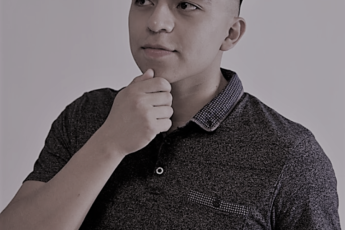 To help narrow the pool of candidates, employers will often screen job applicants during a 15-20-minute phone interview or through one-way video interviews (see article above). With either method, some common interview questions with video links are identified below.
To help narrow the pool of candidates, employers will often screen job applicants during a 15-20-minute phone interview or through one-way video interviews (see article above). With either method, some common interview questions with video links are identified below.
Tell me about yourself. Be concise and answer this question in 2 minutes or less. Start with who you are professionally. Include your top selling points for the position. Describe what you’re looking for now in your job search and why.
Why do you want to work here? What do you know about our mission? You want to demonstrate that you did your research before applying for the position. “About Us” on an organization’s website is a great place to start. Share 2-3 key facts on what you learned about the organization and why it excites you.
What are your strengths? Take the time to evaluate your most impressive areas (experience, talent, soft-skills). Bring those strengths to action through the STAR (Situation, Task, Action, Result) format.
What is your greatest weakness? How you answer this question is revealing. Identify a weakness that is appropriate for the job at hand. Articulate the weakness in a way that it’s fixable and what you’re doing to work on it. It shows you are self-aware and looking for ways to grow and improve. Be concise.
Tell me about a time… (Behavioral questions) What are your best stories? What are your proudest professional accomplishments that demonstrate multiple competencies relevant for the position in which you are applying? Tell the story utilizing the STAR method.
What type of work environment do you prefer? Either describe an environment that you feel is similar to theirs or demonstrate that you can work well in a variety of environments, if you believe that is the case.
What salary do you expect? Do not answer this question with a specific number during a screening interview. Salary negotiations happen after you’ve been offered the position. Instead, a reply should look something like this, “I am most interested in finding a good fit for my skill set that will allow me to grow. I’m confident that you’re offering a competitive salary for the current market.” Advertised positions often include a salary range and websites such as Payscale.com, Glassdoor.com, Salary.com provide market salary ranges for your industry, the size of the company, your location, and experience level.
For phone interviews, you’ll most likely be asked, “What questions do you have for me?” Always have 2-3 key questions for the interviewer. It shows your interest in the position. For example, you can ask about the company’s culture, how your performance will be measured, what an ideal candidate for this position looks like, and other matters that are important to you.
Also for phone interviews, end your interview by asking when you can expect to hear back on next steps in the interview process. You’ll have less anxiety while waiting after the phone interview and you can always follow-up by email to ask for feedback if that time has passed.
Don’t forget to send a thank you letter or email within 24 hours of the interview. Doing so shows the employer you appreciate their time (or the opportunity to answer questions in a one-way interview), and it reaffirms your interest in the position.












